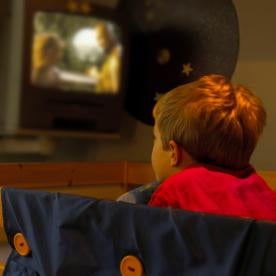The U.S. Court of Appeals for the Federal Circuit upheld the U.S. Patent and Trademark Office’s Trademark Trial and Appeal Board’s (the Board) dismissal of a challenge to Disney’s trademark rights in A.A. Milne’s Winnie-the-Pooh and other characters. Stephen Slesinger, Inc. v. Disney Enterprises, Inc., Case No. 11-1593 (Fed. Cir., Dec. 12, 2012) (Rader, J.) (Reyna, J., dissenting).
In 1930 A.A. Milne transferred to SSI exclusive merchandising and other rights based on the Winnie-the-Pooh characters. In 1961 SSI exclusively “assigned, granted, and set over to” Walt Disney Productions the rights to the 1930 agreement with A.A. Milne. In a 1983 agreement, SSI acknowledged it had transferred and assigned it rights to Disney in 1961, but then revoked the prior agreements and gave SSI “all of the rights in the work which were transferred to [SSI] in 1930 and amended from time to time.” SSI then transferred its rights, acquired in 1930, back to Disney as well as “various further rights in and to said work, which include merchandise,” television, radio and analogous processes. Not surprisingly, the parties interpret the agreement differently—SSI contends it retained the rights in the Winnie-the-Pooh works while Disney maintains that SSI assigned all its rights to Disney. The parties have been locked in litigation for decades, including in state and federal courts as well as at the Board. Importantly, in one of the state court actions, SSI acknowledged that the 1983 agreement “regranted, licensed and assigned all [. . .] acquired rights to Disney.” In a later case before a federal district court, that court analyzed SSI’s state court statements and found SSI estopped from arguing that it retained any interest in Winnie-the-Pooh.
In the action underlying the Federal Circuit’s opinion, SSI sought to cancel Disney applications to register various Pooh related marks. SSI claimed the agreement with Disney was a license that did not grant Disney the right to register marks while Disney maintained that the 1983 agreement assigned all the Winnie-the-Pooh rights to Disney. After the Board granted summary judgment to Disney based on collateral estoppel, SSI appealed to the Federal Circuit.
The Federal Circuit analyzed each element of the collateral estoppel doctrine, specifically a prior action presents an identical issue; the prior action actually litigated and adjudged the issue; the judgment in that prior action necessarily required determination of the identical issue; and the prior action featured full representation of the estopped party. Based on that analysis, the Court concluded that SSI’s prior statements and the district courts’ holdings in earlier cases met each element and that SSI was estopped from claiming otherwise. The Federal Circuit thus upheld the Board, explaining that SSI could not take contradictory positions in serial litigation and had no remaining rights to assert a claim that its 1983 grant of rights was anything other than a complete assignment of its rights.




 i
i

